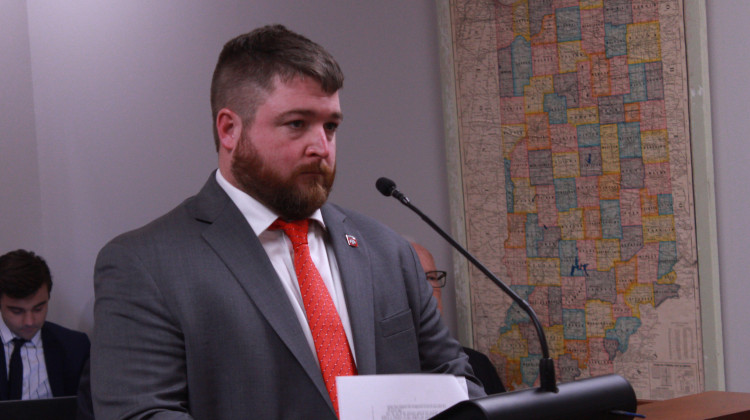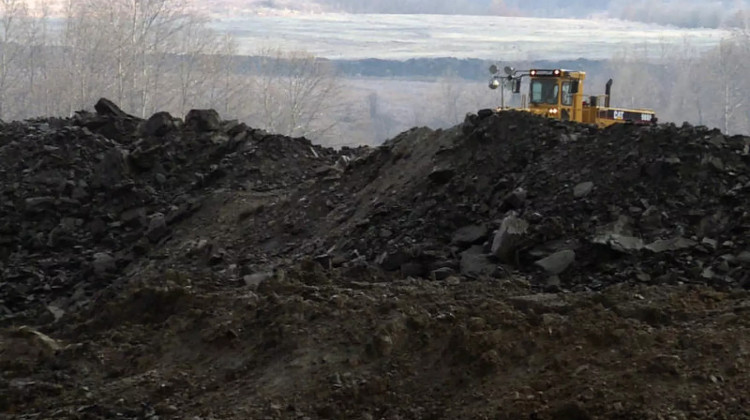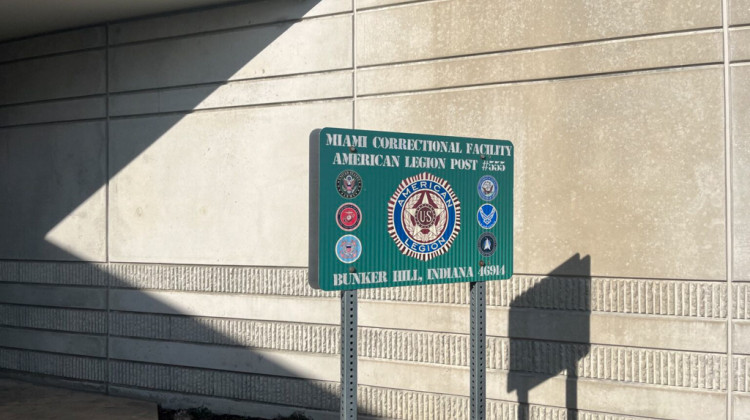The United Auto Workers union alleges General Motors and Stellantis refuse to fairly negotiate wages and other economic benefits. The UAW’s federal complaints come ahead of a mid-September deadline for the “big three” automakers to negotiate a contract and avoid a strike.
Both GM and Stellantis deny the UAW’s charge, which was filed with the National Labor Relations Board on Thursday.
“We are surprised by and strongly refute the NLRB charge filed by the International UAW. We believe it has no merit and is an insult to the bargaining committees,” Gerald Johnson, GM’s executive vice president of global manufacturing, said in a statement posted online Thursday. “The pace of negotiations is based on how quickly both parties resolve nearly 1,000 UAW demands, including more than 90 presented this week. Our goal remains the same - to achieve an agreement without a disruption that rewards our team members and protects the future of the entire GM team.”
For at least one Fort Wayne GM worker, one of those “nearly 1,000” union demands is particularly important.
Like many GM workers hired after 2007, Amber Kidd doesn’t have a pension. The UAW gave up that benefit for new workers in exchange for 401(k) payments and made other concessions following GM’s 2009 bankruptcy.
“I think now we all see, hey, we lost a bunch of stuff back in the bankruptcy. We're getting it back slowly,” she said. “This is our time to fight.”
Kidd works on the door line at the Fort Wayne facility, which produces Chevrolet and GMC trucks. Her mother also works there and used to work at a GM facility in New York where Kidd’s grandfather also worked.
Kidd said she is “nervous” about whether the UAW will get pensions back in this round of contract negotiations. It was a top priority for the union’s self-described “rank-and-file movement,” Unite All Workers For Democracy, during negotiations in 2019.
After a 40-day strike at GM, the pensions didn’t come back. The union’s new leaders are making that a priority in this round of negotiations. And they’re pledging not to concede on members’ demands as their predecessors had.
“We have a great union. We have great leadership,” Kidd said. “I think that they're hearing us more and more. So I'm a little more confident than I was [during] the last strike, but I don't want to get my hopes up too high.”
GM did not respond to requests for comment on its current position on pensions in these negotiations in time for publication. Pension costs were an “albatross” for the companies in the 2009 economic downturn, according to Reuters.
Join the conversation and sign up for the Indiana Two-Way. Text "Indiana" to 73224. Your comments and questions in response to our weekly text help us find the answers you need on statewide issues.
One expert told the New York Times in 2009, “they’re a bankrupt company and they shouldn’t be giving overly generous benefits,” suggesting the company raise its retirement age to offset the risk posed by the billions of dollars in pension costs.
But the UAW says the situation now is different than it was in 2009. The union says GM, Stellantis and Ford made a “combined $21 billion in profits in just the first six months of this year.” UAW President Shawn Fain said “record profits mean record contracts.”
“Their number one priority are the trucks. I mean, it is what it is,” Kidd said. “So I would hope that they see us as the people that provide those trucks and give us back what we lost.”
Kidd said she sees references to the company’s past bankruptcy in response to current UAW demands as “scare tactics.”
“I feel like we are in a much better position now than we were then,” she said. “So I'm not up at night worrying about it, but it is always a possibility.”
The biggest differences between a pension plan and a 401(k) retirement plan come down to how they’re funded. 401(k) plans rely on payments from employees’ paychecks, with some companies contributing a set percentage of the amount an employee chooses to put in.
“I wish that they would match what we put into it because right now it's only up to like 6 percent,” Kidd said.
Pensions, on the other hand, are primarily funded by the employer, with the amount of contribution increasing the longer an employee works for the company. For GM workers who have a pension, this means they can retire and get benefits after 30 years.
“I started at 20. So if I can retire at 50, great, awesome,” Kidd said. “But if I have no health insurance or benefits, what am I supposed to do?”
The UAW also gave up retiree health benefits for workers hired after 2007.
“I don't want to have to be there forever just to support myself,” Kidd said. “If I put in the time and effort, I would love to have a pension after that because I've earned it.”
Kidd’s mother still works for the company, now at the same Fort Wayne truck plant. Kidd said her mom should be able to retire in about five years.
“She has her pension, which is nice because she started in '98,” Kidd said. “But, having a daughter that works there, she wants those things for me. So she wants to fight just as hard as we do because everybody in there has loved ones … we're all fighting not just for ourselves, but for everyone that it's affecting.”
Adam is our labor and employment reporter. Contact him at arayes@wvpe.org or follow him on Twitter at @arayesIPB.
9(MDAyMzk1MzA4MDE2MjY3OTY1MjM5ZDJjYQ000))
 DONATE
DONATE







 Support WFYI. We can't do it without you.
Support WFYI. We can't do it without you.